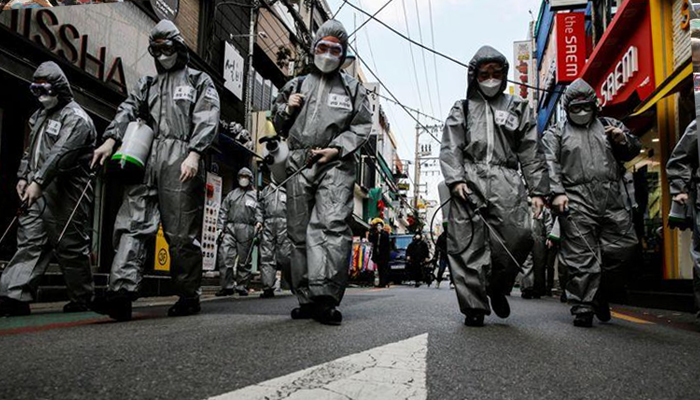Coronavirus: Post lockdown, here is how a few countries are limping back to normalcy
April 11, 2020

Few countries in the world – Czech Republic, Austria, Denmark, and Norway – are now on the road to recovery as they plan on easing lockdown restrictions after their preventive measures started yielding desirable results.
According to a news report published by CNN on Saturday, the countries preparing to ease restrictions had something in common: they were among the first in Europe to implement lockdowns or severe social distancing measures and had rapidly scaled up coronavirus testing.
"They [recovered countries] had these things in place and as a result, they are already past the peak of infections there," said Dr Peter Drobac, a global health expert at the Oxford Saïd Business School.
The number of coronavirus-related deaths in these nations are in the tens or hundreds, rather than the thousands, he said, adding that they are in a much better place because of proactive action.
“What they've announced about how they plan gradually to relax restrictions "looks reasonable and it looks smart.”
However, a study based on China's outbreak, published in the medical journal The Lancet has suggested that the coronavirus lockdowns across the globe should not be completely lifted until a vaccine is found for the disease.
Other countries looking to follow in their footsteps need to meet three general criteria, the news report highlighted, especially if they are to avoid a second wave.
Firstly, they need to have "bent the curve" and seen a consistent reduction in the number of new cases. Secondly, their health care systems need to be able to cope without resorting to crisis measures such as emergency hospitals.
Thirdly, they need a system in place for mass testing, contact tracing, and isolation, so that sick people can be isolated early before they infect others, the report added.
For instance, Denmark has said it plans to send children back to school and kindergarten from April 15 if coronaviruses cases remain stable. But life there will still feel far from normal.
“All festivals and large gatherings will still be banned until August. Denmark's borders will remain shut,” said Denmark’s Prime Minister Mette Frederiksen.
Similarly, the Czech Republic also moved swiftly to impose restrictions on travel, ban large events and close non-essential businesses after declaring a state of emergency on March 12.
Those strict containment efforts now appear to be paying off, as the government announced Monday that it would begin relaxing some coronavirus restrictions this week.
With Austria’s step-by-step approach, the country will now open all shops, shopping centres and hairdressers by May 1, however, restaurants and hotels will open from mid-May at the earliest in a gradual process.
Norway is taking a different approach again, prioritising the reopening of schools as it eases containment measures introduced in mid-March.
It will begin to scale back its lockdown measures from April 20, Prime Minister Erna Solberg said, when kindergartens will start to reopen. A week later, schools will reopen for pupils in grades one to four.
"Our ambition is for all students to somehow get back to school before the summer," Solberg added.
Meanwhile, Germany is taking tentative steps towards easing their lockdowns and isn't announcing a date as to when it lifts the lockdown, yet.
Germany's Chancellor Angela Merkel on Thursday said that the latest coronavirus numbers in her country gave reason for "cautious hope" but warned that Germans must adhere to the current restrictions over the Easter holiday weekend.
Officials have recorded more than 1.7 million cases and as many as 102,743 deaths globally since the virus emerged in China in December.











